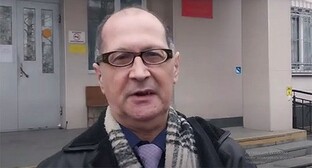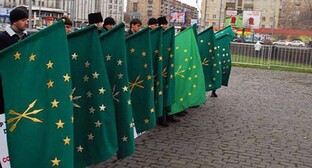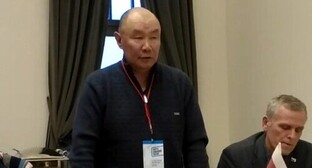23 April 2010, 23:30
Zuckerman: DDoS-attacks are easy in Internet, every website should get ready
Ethan Zuckerman, a senior researcher at the Berkman Centre "Internet and Society" of the Law Department at Harvard and founder of the non-commercial organization "Geekcorps" and hosting company "Tripod", notes that it is often very difficult, and at times even impossible to define, who has organizes a hacker's attack - the government, amateurs upon a govt's sanction, or certain hostile persons. Therefore, one should be properly ready in advance how to counteract them.
"The reality is that in the Internet DDoS attacks are quaite easy to launch," Mr Zuckerman said in his interview to the "Caucasian Knot". He noted that resolutely set up persons can ruin large websites. The expert advises independent masses media to be ready to such attacks.
As we move towards using the Internet as the environment for open public statements, debates evolve on how we can ensure the freedom of expression under Article 19 of the Universal Declaration of Human Rights in the online-environment, and protect this right from any state and corporate control. It is really a challenge and we are not yet even in the near vicinity from its solution, he noted.
Mr Zuckerman said that it would be a mistake to assert that the Internet is beyond any state regulation. He gives an example that the content of American Internet-servers is regulated by the US legislation, which is strict as to violations of intellectual property rights, in particular, of the copyright.
"Other states set their control over the Internet by blocking content that violates local laws, or pressuring web-hosts in other jurisdictions to block that content," marked the researcher, adding that there are also other restrictions not much spoken about - corporate restrictions, since most of online-dialogues are conducted on social platforms, like LiveJournal, Blogger, Facebook, Twitter, and all of them are controlled by corporations which put control over dialogues by imposing their conditions for granting services and public norms of behaviour.
Speaking about types of censorship practised by authoritative regimes in their suppressing of unwanted websites, Internet editions and blogs, Mr Zuckerman said that in 2008 Armenia used DNS-blocking (blocking of domain names) to disable political websites for the term of the state of emergency, introduced after the presidential election. As the dialogue passed over from these local sites to the international platforms, such as YouTube, some providers of Internet-services lifted the ban of these sites, and also of the popular information website Armtoday.info, which is hosted outside Armenia.
"While there's not much evidence of the government arresting or harassing bloggers, there are some reports of DDoS-attacks - the Armenianhouse.org reported a DDoS attack as early as 2005, and the main national provider reported a DDoS recently - it remained unclear who launched that attack or why," said the researcher.
He noted that Azerbaijan applies some Internet filtering and blocks access to gay and lesbian websites, erotic content and some hacking and dating sites. According to his story, there's evidence that in 2007 Internet service providers began blocking sites associated with protests around utility prices.
Speaking about Georgia, Mr Zuckerman marked that there were no certificates that Georgia filters the Internet. "The most egregious example of state-sponsored censorship was the confiscation of computer equipment of bloggers who produced a video that insulted the Catholicos-Patriarch of the Georgian Orthodox Church. Obviously, Georgia has been targeted heavily in DDoS attacks - and DDoS attacks have likely be launched from Georgian computers - during the Russian-Georgian conflict," said the expert.
He emphasized that as people around the world are discovering the power of online speech, governments are responding by demonstrating a rich array of tools that can be used to control speech online. Among them, the researcher identified filtration, restriction of publications, legislative restrictions, hacking and propaganda.




